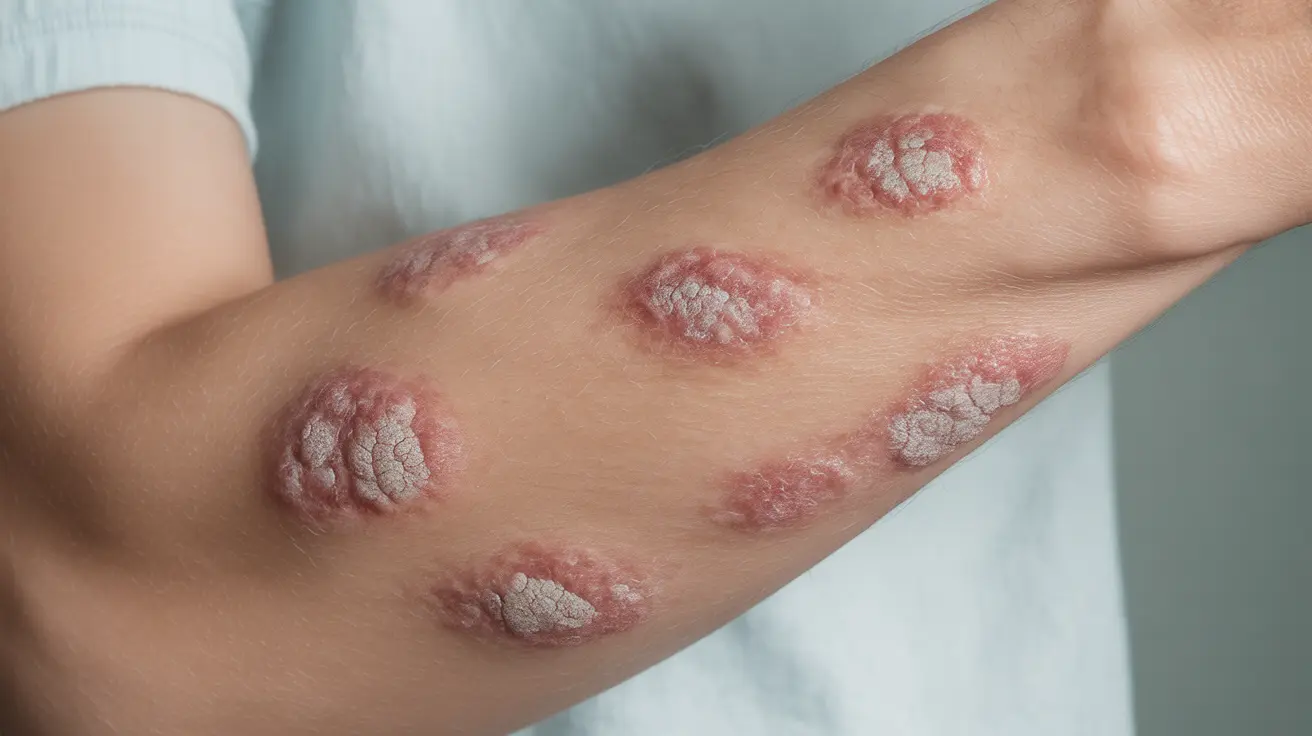Living with psoriasis means dealing with unpredictable flare-ups that can significantly impact your quality of life. Understanding how long these flares typically last and what influences their duration is crucial for better disease management and peace of mind.
While each person's experience with psoriasis is unique, knowing what to expect during a flare-up can help you better prepare for and manage these challenging periods. Let's explore the typical duration of psoriasis flares and factors that can affect their length.
Duration of Psoriasis Flares
The length of a psoriasis flare can vary significantly from person to person and even between episodes. Typically, without treatment, a flare-up may last anywhere from a few weeks to several months. Some individuals might experience shorter flares lasting just a week or two, while others may deal with persistent symptoms for extended periods.
Several factors can influence how long a flare persists, including:
- The type of psoriasis you have
- The severity of your condition
- Your overall health status
- Environmental factors
- The effectiveness of your treatment plan
Common Triggers for Psoriasis Flares
Understanding and avoiding triggers can help prevent flares or reduce their duration. Common triggers include:
- Stress and anxiety
- Skin injuries or trauma
- Certain medications
- Infections and illness
- Weather changes
- Alcohol consumption
- Smoking
- Certain foods
Impact of Lifestyle on Flare Duration
Your lifestyle choices can significantly affect how long a psoriasis flare lasts. Maintaining a healthy lifestyle through proper diet, regular exercise, and stress management can help reduce the severity and duration of flares.
Treatment Options for Managing Flares
Various treatment approaches can help shorten the duration of psoriasis flares:
Topical Treatments
Prescription and over-the-counter topical medications can help manage symptoms and potentially reduce flare duration. These might include corticosteroids, vitamin D analogs, or tar-based products.
Systemic Medications
For more severe cases, oral or injectable medications may be prescribed to help control inflammation and reduce flare duration.
Light Therapy
Controlled exposure to UV light, under medical supervision, can help clear psoriasis plaques more quickly during a flare.
Understanding Remission
Remission periods are times when psoriasis symptoms significantly improve or disappear completely. These periods can last for weeks, months, or even years with proper management and treatment adherence.
Frequently Asked Questions
How long does a typical psoriasis flare last and can its duration vary?
A typical psoriasis flare can last anywhere from a few weeks to several months. The duration varies significantly between individuals and depends on factors such as trigger severity, treatment response, and overall health status.
What are common triggers that can cause a psoriasis flare-up?
Common triggers include stress, skin injuries, infections, certain medications, weather changes, alcohol consumption, smoking, and some dietary factors. Identifying and avoiding personal triggers can help prevent or minimize flares.
How can I reduce the length and frequency of my psoriasis flare-ups?
You can reduce flare duration and frequency by following your prescribed treatment plan, maintaining a healthy lifestyle, managing stress, avoiding known triggers, and working closely with your healthcare provider to optimize your treatment approach.
What does remission mean in psoriasis, and how long can remission periods last?
Remission refers to periods when psoriasis symptoms significantly improve or disappear. Remission periods can last from weeks to years, varying by individual and depending on treatment effectiveness and trigger management.
What treatment options help manage and shorten psoriasis flare-ups?
Treatment options include topical medications, systemic treatments, light therapy, and lifestyle modifications. The most effective approach often combines multiple treatments tailored to your specific needs and psoriasis severity.




